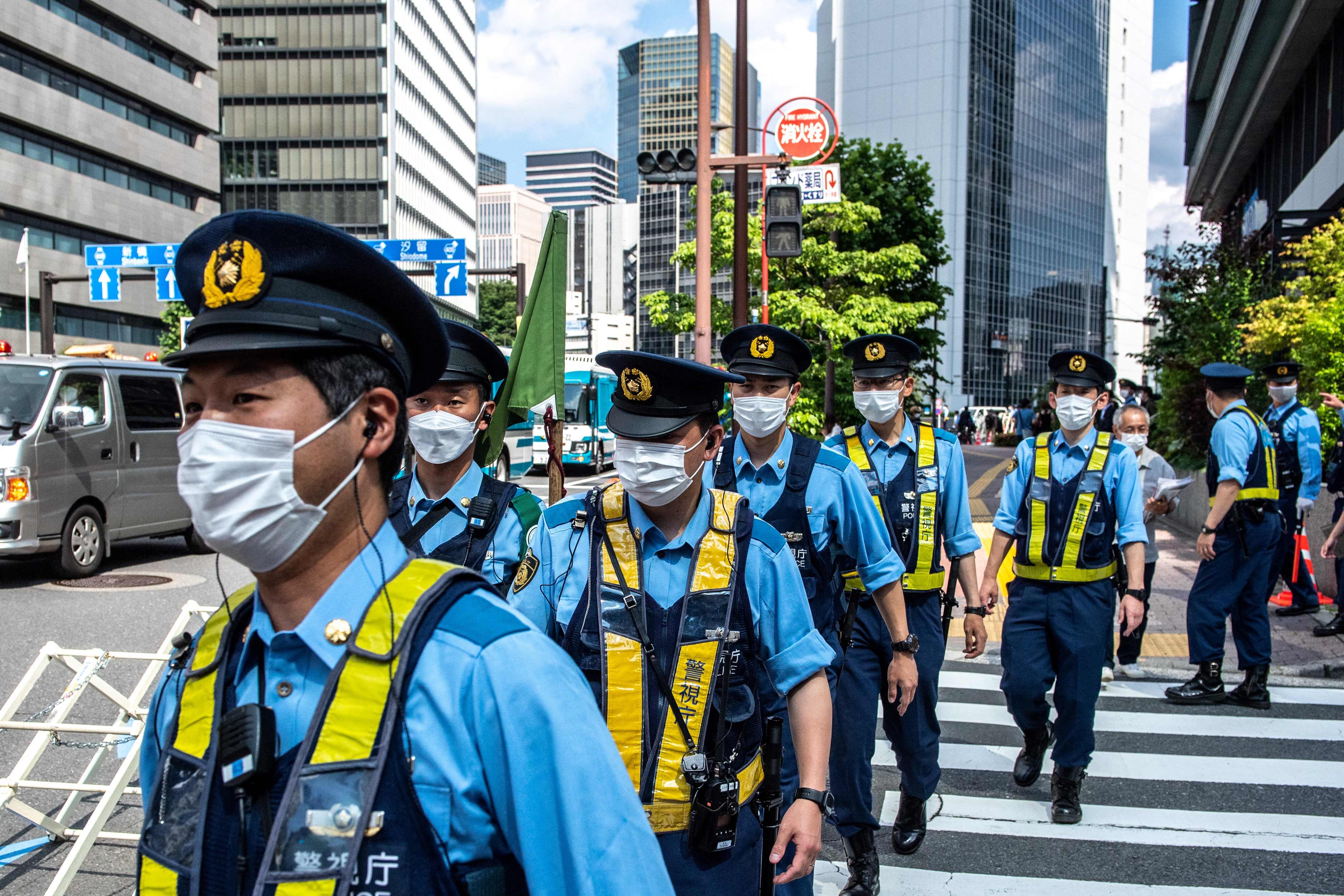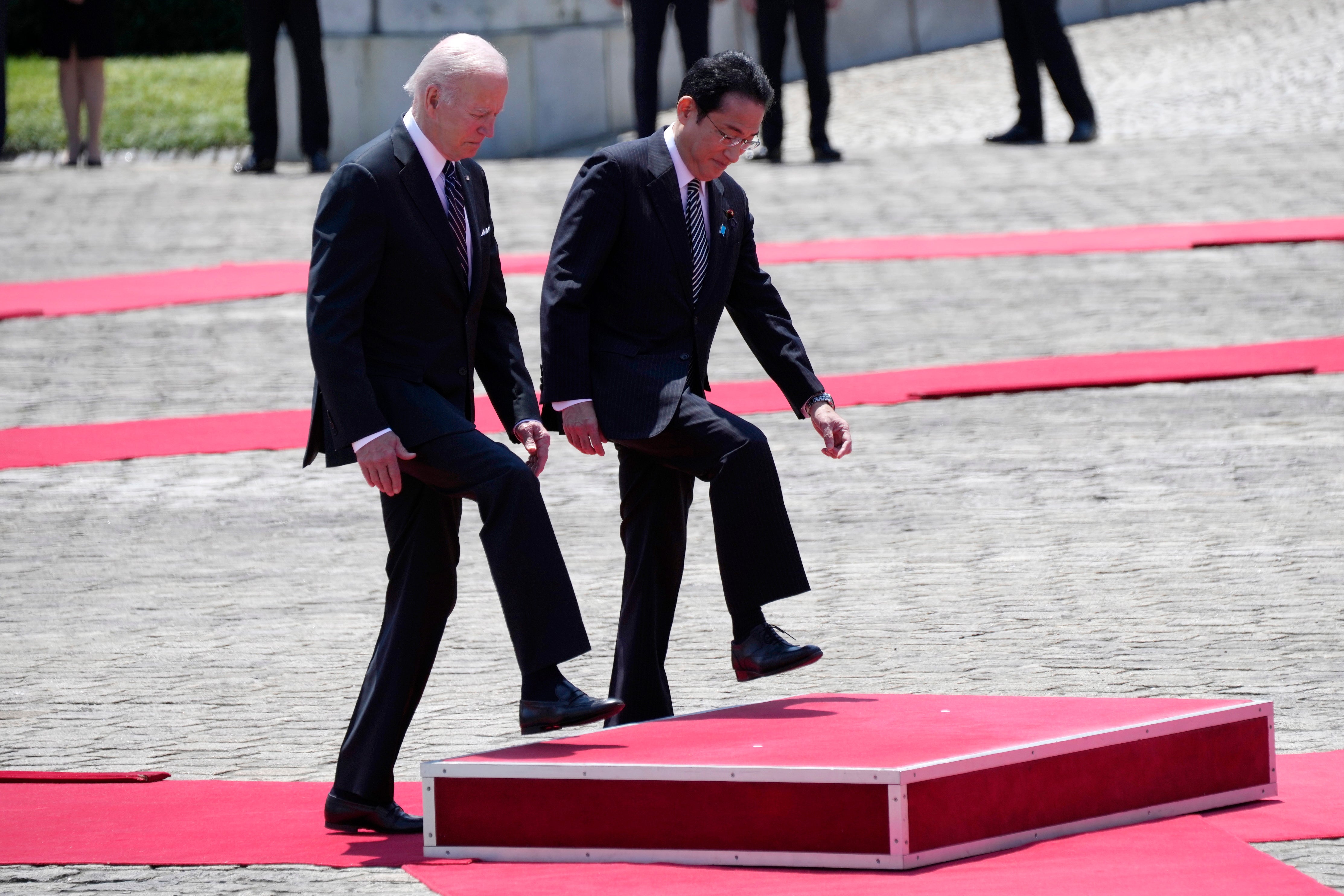US will use force to defend Taiwan if China invades, says Biden
Biden says idea Taiwan ‘can be taken by force ... is just not appropriate’
Your support helps us to tell the story
From reproductive rights to climate change to Big Tech, The Independent is on the ground when the story is developing. Whether it's investigating the financials of Elon Musk's pro-Trump PAC or producing our latest documentary, 'The A Word', which shines a light on the American women fighting for reproductive rights, we know how important it is to parse out the facts from the messaging.
At such a critical moment in US history, we need reporters on the ground. Your donation allows us to keep sending journalists to speak to both sides of the story.
The Independent is trusted by Americans across the entire political spectrum. And unlike many other quality news outlets, we choose not to lock Americans out of our reporting and analysis with paywalls. We believe quality journalism should be available to everyone, paid for by those who can afford it.
Your support makes all the difference.The US will intervene with military force if China moves to invade Taiwan, Joe Biden said on Monday during a visit to Tokyo, in one of America’s strongest statements of support for Taipei in decades.
On his first trip to Asia since the start of his presidency, Mr Biden said the burden to safeguard the self-ruled island had become “even stronger” following Russia’s unprovoked invasion of Ukraine.
“That’s the commitment we made,” Mr Biden said in a press conference, adding that any effort by China to use force against Taiwan would “just not be appropriate”.
He added that such an attack would “dislocate the entire region and be another action similar to what happened in Ukraine”.
His comments in Tokyo appeared to be a departure from America’s existing policy of “strategic ambiguity” in its position on Taiwan, whereby the US has promised to support the government in Taipei but has not explicitly stated what it would do in the event that Taiwan came under attack.
Washington says it adheres to a “One China policy”, meaning the US has formal diplomatic relations with the Chinese government in Beijing while maintaining informal discussions with Taiwan.
Beijing, meanwhile, espouses the “One China principle” – that China is a single entity encompassing all disputed territories, including Taiwan. President Xi Jinping has previously vowed to regain control over Taiwan – which has been self-governed since the end of the Second World War – and has not ruled out using military force to do so.

Soon after Mr Biden’s statement, a White House official said that there had been no change in US policy on Taiwan.
“He reiterated our One China policy and our commitment to peace and stability across the Taiwan Strait. He also reiterated our commitment under the Taiwan Relations Act to provide Taiwan with the military means to defend itself,” the official said, on condition of anonymity.
Despite the insistence by the White House that the comments did not represent a change of policy, Grant Newsham, a retired US Marine Corps colonel and now a research fellow at the Japan Forum for Strategic Studies, said the meaning was clear.
“This statement deserves to be taken seriously,” Mr Newsham said. “It is a clear enough statement that the US will not sit by if China attacks Taiwan.”
China has intensified its military provocations in the past year, flying a record number of planes into what Taiwan claims is its airspace. Taipei has called the manoeuvres an act of intimidation, ultimately designed to force it into accepting unification with mainland China.
Mr Biden described these tactics by China as dangerous. “They’re already flirting with danger right now, by flying so close, and all the manoeuvres that are undertaken,” he said.
He explained that the US does not expect China to seize Taiwan by force, but added that this assessment “depends upon just how strong the world makes clear that that kind of action is going to result in long-term disapprobation by the rest of the [international] community”.

He said that, to deter China from its aspirations of taking over Taiwan, it is necessary that Russian president Vladimir Putin “pay a dear price for his barbarism in Ukraine” in order to demonstrate to China and other nations that such actions are not acceptable.
The president’s strong comments in relation to China are likely to infuriate Beijing, which has previously condemned Washington for “external interference and provocations” on the Taiwan issue.
The statement is the most outspoken so far of Mr Biden’s visit to Asia, which began last week in South Korea and includes meetings with the leaders of Japan, India and Australia, members of the “Quad” group of countries.
Also on Monday, the US president announced the launch of a new trade pact, to be known as the Indo-Pacific Economic Framework, or IPEF. The pact includes 13 member states that between them account for 40 per cent of global GDP: Australia, Brunei, India, Indonesia, Japan, South Korea, Malaysia, New Zealand, the Philippines, Singapore, Thailand, Vietnam and the US.
It is being touted as a replacement for the Trans-Pacific Partnership (TPP), from which Washington dropped out in 2017 under the then US president Donald Trump.
The IPEF pact, which would allow the US to work more closely with Asian economies on issues such as supply chains, digital trade, clean energy and anti-corruption, does not include Taiwan.
Critics of the framework say it has major limitations – including a lack of incentives to prospective partners, such as lowering tariffs or providing greater access to US markets – making it a poor replacement for the TPP. The details still need to be ironed out, however, with Monday’s launch representing only the start of talks that are expected to take 12 to 18 months.
Meanwhile, Japanese prime minister Fumio Kishida expressed gratitude to Mr Biden for his support in relation to Japan’s bid to join a reformed UN Security Council as a permanent member.
“President Biden expressed the necessity of reforming and strengthening the United Nations, including the Security Council, which bears a major responsibility for the peace and security of the international community,” Mr Kishida said.

Join our commenting forum
Join thought-provoking conversations, follow other Independent readers and see their replies
Comments